Walking and Writing: The Effects of Exercise on Creative Thinking
In Charlotte Wood’s collection of interviews titled, The Writers Room, Tegan Bennett Daylight says, “Scratch a writer and you’ll find a walker.” In contexts, Daylight was discussing how daily walks are a vital part of her writing process as they assist in the unlooping of her thoughts. Though she uses walking as a way to stay fit, this particular form of daily movement has had a positive impact on her writing craft, especially when she encounters creative problems, “Almost everytime I go for a walk on my own, it brings me the solution I was looking for.” In terms of problem-solving, outlining, plot development or a simple deepening of understanding regarding one’s own work, Daylight believes that these insights occur because walking allows oneself to become “distracted enough from yourself to let the creative play start to happen.” Daylight is not alone in this opinion. Anecdotal evidence from both contemporary authors and literary juggernauts has long connected the usefulness of aerobic exercise to creative writing.
For some authors, the connection between walking and writing remains a mystery, though they know their craft is improved whenever they exercise. Australian author, Margo Lanagan, starts her daily writing practice in the early hours of the morning before she goes for a walk with a friend. When asked if this activity interrupts the flow of her writing, she says no, the walk simply puts some “useful distance” between her and the work. Counterintuitively, the hindrance from physical and mental distance created by the walk actually benefits Langan’s work.
While a daily walk can be an efficient way to take a break from a difficult manuscript, other authors use it intentionally to unloop thought, workout solutions or with the hope that the muse will reveal some creative insight. As Daylight says, “Maybe it’s because you’re distracted enough – because you need to look around when you cross the road or whatever – you’re distracted enough from yourself to let the creative play start to happen, and then your mind just goes, ‘Here’s the thing you’re looking for.’” Daylight goes on to hypothesise that these moments of insight may be brought on by an increase in endorphins. When the body relaxes, the mind is allowed to open up to “new possibilities.”
It is the potential to discover “new possibilities” that keeps writers on the track. The correlation between walking and creative insight is not always guaranteed, however, many authors have experienced this phenomenon, and for some, it has even solved issues of writers’ block. In his memoir/craft manifesto, On Writing, Stephen King says he experienced his first bout of writers’ block during his initial draft of The Stand. It was during an afternoon walk that a solution – that had been evading him for weeks – suddenly popped into his head and he was able to finish writing the first draft.
Beyond spontaneous insights and the space for mental clarity, walking – especially outside – can be a useful way to gather inspiration and stimuli that can fuel the creative process. Australian author Sarah Schmidt, often documents her daily walks by taking photos and posting them on her blog. The often eerie and unsettling images mirror the mood of her equally eerie and unsettling (though engrossing) debut novel, See What I Have Done. The photographs complement the mood and imagery of Sarah’s work, thus supporting her creative process, but the walk also grants her the time to contemplate her novel on a deeper level.
“I’m one of ‘those’ writers. You know the kind: fidgety, annoying, needs to walk out their thoughts, sees something along the way and thinks, ‘now that’s interesting. I wonder if…’ takes photos of it and then just stares at said photo for hours. I’m also desperately, heavily reliant on nature to help me write.”
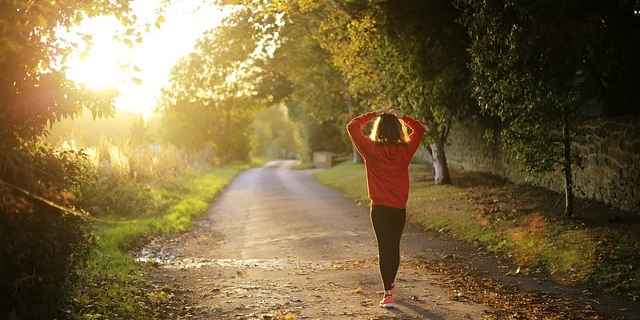
Though walking appears to be a trend amongst writers, there may be a deeper connection between movement and our own basic physiology. As Hippocrates states, “Walking is man’s best medicine.” Although any form of moderate exercise can result in improved cognitive ability and creative ideation, walking is the most natural form of exercise for the human body. When comparing walking to swimming and running, walking can occur over a longer period of time and at a lower risk of injury, for example, in 2010, The New York Times reported that 90 percent of marathon participants experience injury during their training. In addition to low-level injury, walking also stimulates the 7 200 nerve ending that run along the base of our feet. The same nerves that are activated in Chinese medicine (reflexology) to encourage balance through the organ, endocrine, nerve and lymphatic system.
Our preference for walking may also be primal. Until 10,000 years ago, humans did not live in permanent housing or villages; they were nomadic. A hint that perhaps, being in movement is a natural human state. Author and renown nomad, Sarah Wilson – who’s lived out of a suitcase/backpack for eight years – offers the following insight into movement. “I know this: It’s in movement that we find so much joy. It’s in movement that we create. It’s in movement that we fend and grow and connect more readily with big minds and reach more important touch points […] Studies show babies are most settled when rocked at the same pace at which a woman walks. We are calmed by the primitive memory of our moving ancestors.” Similarly, in a New York Times piece about writer and nomad Bruce Chatwin, the following line was offered, “Movement itself might be the ideal human state.”
Ideal or not, walking does improve our ability to think more creatively. In a study conducted by Stanford University in 2014, Marily Oppezzo and Daniel L. Schwartz found that creative ideation increased during and shortly after walking. In a ‘meta’ moment, the idea for this experiment arose while Marily and Daniel were out on a walk. The study featured four experiments that tested participants creative divergent thinking by having them complete the Guilford’s alternate use (GAU) test. Their convergent thinking was tested using the compound remote associates (CRA) test. The study compared the effects of walking on a treadmill, sitting then walking, walking then sitting, walking outside and being pushed in a wheelchair outside. Following a walk, 81% of the 176 students had an increased improvement on their GAU score and 23% on the CRA test.
One experiment required participants to devise alternative uses for everyday objects, such as a button or a tyre. On average, students were able to think of four to six additional uses for the ordinary object when they were walking compared to when they were sitting down. Another experiment asked students to contemplate the metaphor “a budding cocoon,” and to brainstorm as many unique but equivalent metaphors as possible. This reveals that 95% of students who went for a walk were successful 95%, compared to only 50% of students who remained seated. However, the study found that walking lessened students’ performance when the task required laser thinking. Oppezzo hypothesised that walking proved counterproductive in this instance due to the minds tendency to drift while walking. “If you’re looking for a single correct answer to a question, you probably don’t want all of these different ideas bubbling up.”
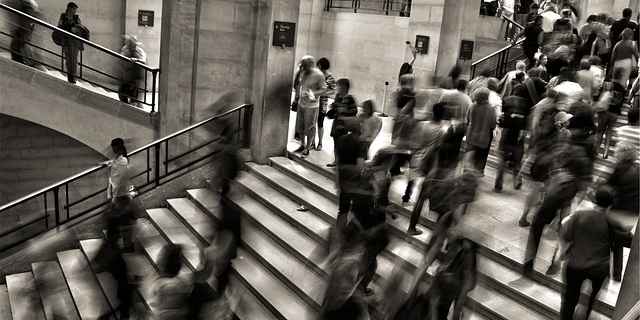
Where you walk also impacts its effectiveness. A 2008 study conducted by the University of South Carolina found that students who walked in nature had improved performance on a memory test compared to students who walked city streets. The value of outdoor walks, particularly in nature rather than urban environments, is supported through a small but growing collection of studies. Our cognitive abilities and our attention deplete over the course of a day. The intense stimulus that exists in urban environments – noise, traffic, and signs – can quickly exhaust an individual. However, walks in nature tend to be more restorative due to the lack of stimuli and reduction in external threats; the mind is allowed to relax and drift. That being said, writers are also observers. So, there is value in taking a walk through a city or suburb as these environments can provide inspiration or ideas that can support the writing process.
Regardless of the environment, Oppezzo and Schwaltz discovered that walking continued to improve participant’s creative ideation even after they had returned to their desks. At least, for a short while.
Though the above studies and anecdotes prove that there is a connection between creative thinking and walking, neither addresses the physiological changes that occur during aerobic exercise. Walking changes body chemistry as the heart is encouraged to pump faster, increasing the volume of blood and oxygen to the muscles and organs –the brain included. This explains why people who don’t exercise regularly experience an improvement in their memory and attention to detail following a period of mild exercise. In terms of greater mental health, regular walks assist in the developing of new connections between brain cells while holding off the weakening of brain tissue associated with aging. Walking increases the size of the hippocampus (responsible for memory). It also lifts the molecule levels needed for the growth of new neurons while assisting in the transmitting of messages between them. The clarifying effect experience during and after exercise is the result of these physiological changes.
Fresh ideas, solutions and the ability to see “new possibilities” occur more frequently when a person is in an aerobic zone. Neuroscientists have discovered that this increase in creative thinking occurs when the mind is allowed to go into a non-thinking default state of consciousness. Many creatives tell anecdotes of how a fresh or exciting idea spontaneously popped into their mind when they were busy doing something else. As Henry Miller said, “Most writing is done away from the typewriter, away from the desk. I’d say it occurs in the quiet, silent moments, while you’re walking or shaving or playing a game or whatever.” Though some may be tempted to give all credit to the muse, the catalyst behind these spontaneous insights is physiological and psychological: there is an increased supply of oxygen to the brain and the mind is free to wonder.
In a 1911 essay by William James called On Vital Reserves: The Energies of Men and the Gospel of Relaxation, James offers his own take on this non-thinking default state, advising a need to avoid blindly focussing on the details of a solution and its corresponding plan of action.
“When once a decision is reached and execution is the order of the day, dismiss absolutely all responsibility and care about the outcome. Unclamp, in a word, your intellectual and practical machinery, and let it run free; and the service it will do you will be twice as good.”
When the mind is unclamped or quietened, then the subconscious mind may produce solutions that the conscious mind could never think of. Our thoughts are the results of millions of neurons linking together in a pattern known as an engram. By unclamping our thoughts, as James suggests, the repetitive thought loops that occupy our conscious mind can be broken and new neural networks that will better support the imagination can be created. This explains, in part, the very human habit of going for a walk when in a state of emotional upset – the movement breaks the thoughts that create the emotion.
Writing could be described as a conglomeration of personal experiences, observations, external stimuli consciously or subconsciously absorbed and the occasional random insight. These different sources of information settle in our brains, as Ann Patchett describes, like a “mental compost.” It’s through the act of walking that an author is able to shake free this compacted knowledge and discover something useful. This can only occur, however, if the mind is unclamped or enters a non-thinking state. A fact about heart disease read weeks ago and promptly forgotten may reappear while trekking a deserted bush track. Suddenly, the writer is able to fix that drab scene with their overweight, over-aged protagonists by transforming it into a medical drama!
Not all writers are walkers, yet many are. Though some see this casual form of exercise as nothing more than an excuse to take a break, some view it as a potentially useful practice for unlooping thoughts, for others, it is an essential tool in their craft kit. A daily walking habit will not turn an emerging writer into a best seller, but the endless author anecdotes, scientific proof and the basic physiological evidence allow for one solid conclusion: walking can help some writers some of the time, but you can’t make an ‘A-ha’ moment happen.
Works Cited
Ferris, J (2014) ‘Why Walking Help Us Think,’ The New Yorker, New York, available from: https://www.newyorker.com/tech/elements/walking-helps-us-think
Guilford, J (1967) ‘The Alternative Uses Test’, The Creative Huddle, available from: https://www.creativehuddle.co.uk/the-alternative-uses-test
King, S (2000) ‘On Writing: A Memoir of the Craft,’ Scribner, United State of America.
McDougall, C (2010) ‘Born to Run the Marathon?,’ The New York Times, New York, available from: https://well.blogs.nytimes.com/2010/11/04/born-to-run-the-marathon/
Mednick, S (1959) ‘The Remote Associates Test’, The Creative Huddle, available from: https://www.creativehuddle.co.uk/the-remote-associates-test
Oppezzo, M and Schwartz, D (2014) ‘Give Your Ideas Some Legs: The Positive Effect of Walking on Creative,’ Standford University, available from: https://www.apa.org/pubs/journals/releases/xlm-a0036577.pdf
Schmidt, S (2017) ‘Indies Introduce Q & A,’ Stauffer, J (interviewer) American Book Sellers Associaton, available from: http://bookweb.org/news/indies-introduce-qa-sarah-schmidt-36429
William, J (1922) ‘On Vital Reserves: The Energies of Men. The Gospel of Relaxation,’ Harvard University, United States of America, available from: https://archive.org/details/onvitalreserves02jamegoog
Wilson, S (2017) ‘Why am I a nomad?’ Sydeny, available from: http://www.sarahwilson.com/2017/09/why-am-i-a-nomad/
Wood, C (2016) ‘The Writer’s Room: Conversations About Writing,’ Allen and Unwin, Sydney.
Yanagihara, H (2017) ‘Bruce Chatwin: One of the Last Great Explorers,’ The New York Times, New York, available from: https://www.nytimes.com/2017/09/07/t-magazine/bruce-chatwin.html
What do you think? Leave a comment.



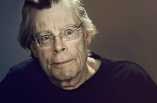


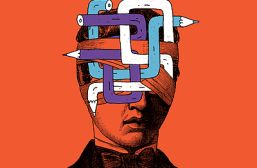
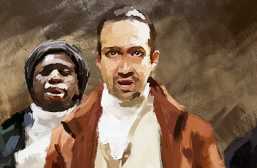
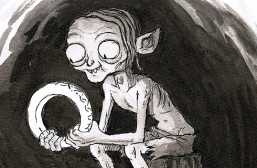


I walk quite a bit, up to 5 miles/day and typically listen to an audio book as I. While I enjoy a these books a great deal, I’ve often wondered if I’m not losing out on prime creative thinking time. This piece certainly makes me wonder – I guess I’ll think it over.
Walking is tremendously helpful for a writer.
Stephen King walks a lot, as he mentioned in “On Writing.”
If you write, it’s impossible to walk and not write in your head.
To walk is to think is to write.
Or when driving your car.
Or brushing your teeth.
Or typing a comment . . .
Writing doesn’t let go, ever.
And that’s why we love it (sometimes).
Indeed.
Three more excellent books about walking and reshaping the self
1. Wanderlust by the mighty Rebecca Solnit
2. A Philosophy of Walking by Frédéric Gros
3. Walking by Henry Thoreau.
It’s a subject that can never be written about too often.
Sounds interesting, thanks for the suggestions.
A little known gem is a book by ajahn amaro, a buddhist monk who walked the english landscape and wrote a book about it called ‘Tudong The Long Road North’ – Obviously has the flavor of meditative observations around impermanence.
The ‘Wanderlust’ book had a powerful effect on me and I still think of it often. In a way, it changed my life or at least offered signposts as to how I might change it.
Someone needs to do a book of verse to recite while walking. This would make it I hope:
The road goes ever on and on,
Down from the door where it began,
And I shall follow if I can,
Pursuing it with weary feet,
Till it should meet some larger way,
Where many paths and errands meet,
And whither then ? I cannot say
JRR Tolkein
Many cyclists find the cadence of cycling very valuable for their writing.
An essay I enjoyed and I have recommended it to several in our university English Department: Just an interesting twist on how to look at writing.
Hi Joseph,
I’m so glad you liked the post. I wonder, would you be comfortable with me using an adapted version of this comment as a testimonial on my site and as part of an advertising campaign on Instagram? (Not a paid “campaign” just as part of a normal Instagram post on my page to promote this blog and my newsletter in general). In both cases, I’d be sure to link back to your website or social media pages if you’d like me to.
Sure. I recommended your article to two of my colleagues in English, as I mentioned. One is considering using it in the Fall Semester. I retired in May but I still keep in regular touch with most of my colleagues I enjoyed over the years, including two in English.
Oh wow! That’s fantastic! 🙂 And, congratulations on your recent retirement.
In college, I told one of my professors that I did walking meditation to improve my writing skills. I said that simply to sound deep and profound in hopes that he’d gain some interest in me as a person. College was a very lonely place and it took me until 3 years after it to come to grips with what became an appreciation for solitude. Now, I do take walks, but instead of feeling lonely, I can see, hear, smell and experience that I am most definitely not. And that gives me inspiration to write.
I have aspirations to be a writer but the fact is that I am not a writer. But I remember walking for hours during my undergrad years, and even after getting out of the university. They were all aimless walks to pacify my agitated or rejuvenate deeply depressed mind. These long aimless walks did magic for me because I used to feel better. The depression would be gone, and moreover, I remember reaching conclusions about many lingering problems. Those were the moments I was all by myself, not with relatives, friends, books or TV. I was truly independent, absolutely on a world of myself. I could understand things more clearly. I used to get carried away in a train of thought, without any specific order.
I love walking! It does help get my ideas flowing, but it also just makes me happier. My walks with my dog are often some of the happiest little moments of my days.
Such a lovely routine to have established 🙂
I have found that certain things which remained cloudy in my understanding and about which I had not thought for a while, suddenly became clear after I had just ambled around for an hour aimlessly.
Yup. Sometimes you can’t “figure out” a problem while sitting in front of a computer. Getting out and allowing the mind to wander doesn’t guarantee a solution will come, but so often it does.
I do my best thinking when I go for a walk! (Or while I take a shower.) 🙂
Yes, showers, washing up dishes or other tasks where you’re mind is allowed to wander are very useful!
Ha, yes, showers are great for creative thinking too. 😉
For every two hours of chair time I usually take a 15 minute stroll through my neighborhood.
Works every time.
When I sit back down I am refreshed and have another 1–3 good ideas.
That’s a good idea. I enjoy hearing about other writers processes/routines. Some writers work for 45 mins and then take a 15 mins break or work for 25 mins and have a 5 mins break. Personally, I strive to work for 50 mins, but if I am really “in” the work, I tend to work through these breaks — a habit my eyes do not thank me for.
Walking is magic.
Pigrimage itself has been the spine of much great literature of course. The much missed Frank Delaney’s minor masterpiece A Walk in The Dark Ages can be had for a couple of dollars.
I haven’t heard of this book, thanks for the recommendation!
Thanks for a great read Tara. Writing is certainly like delving into a treasure-trove, or perhaps a nightmarish labyrinth. And even without going on a long walk, I find the simple act of closely observing nature, and imbibing all that diversity, behaviour, complex ecological interactions, and evolution, a bit the same. A vast, multilayered, wilderness (in the broadest sense) can be explored, going off in all directions. I don’t usually find either experience harrowing, but maybe that’s because I’ve never done a 2-week walk or completed a novel!
Don’t worry, I’ve never been on a 2-week walk either, but I have written a novel and I found that like Tegan Bennett Daylight, I was often able to resolve plot holes or brainstorm for more effectively while out walking.
fantastic piece…
I am so glad you enjoyed the article 🙂
“I only went out for a walk and finally concluded to stay out until sundown, for in going out I found I was really going in.”
Writer, poet and early wilderness advocate, John Muir
I love walking; it’s when my fictional characters speak in my mind.
Walking is a fantastic activity, especially for writers.
Im love it.
Nice article! I’ve definitely noticed that, for me at least, different writing styles and different problems require different solutions. If I get stuck writing an article or review, going for a hike is great. I can clear my head and come back refreshed. But if I’m stuck on a screenplay, walking never seems to help, whether it’s in the city or the mountains. It’s a nice break, for sure, but for some reason it’s hard to think of story ideas. In that case, I find that watching a movie I really love is the best thing. Does anyone else experience this?
A wonderful article. Just last week I was dog-sitting for some friends and taking the dogs out on long walks is a great way to mull over ideas in my head. Nature is always an inspiration for me. Thanks for the fascinating read.
It is interesting to compare how writers actually succeed in being creative,and how they are perceived in movies as getting inspiration. With the idea of a alcoholic drink in hand, and lounging around the house while trying to come up with a ground breaking idea.
Really interesting, thanks for sharing, I’ll have to give it a go.
good
Interesting idea, I liked the section on reflexology and being primal. Also nature vs city scape.
Thanks
This is an ideal scenario for writers -and artists – to be able to unwind mentally for a short time does untangle the brain. Years ago I used to live close to the beach and we had a dog who loved to walk, so I made a point of walking early when I could. Now where I live it’s not really inspiring to walk and physically it’s not that easy for me these days. My mind notices the difference and it’s a challenge to pause life and try to recharge.
Amazing piece of content.
i am currently reading the reveries of a solitary walker by Rousseau and he reflects upon topics like this. If you’re looking for more information on the subject i would suggest taking a look at his essays
yesterday, while walking, I suddenly came up with a poem and just had to stop somewhere to write it down
Great piece, Tara. I often find a long walk on the beach with my dog helps me work through writing issues. On one walk a discussion with a friend helped me solidify a character’s backstory. I aim to get out once a day – even if not to the beach – just out in nature. 🙂
Nice content.
I got some ideas after meditation or yoga. Sometimes I visit a float center. My brain relaxes there.
I find that on days when I run at lunch, I’m much more productive the rest of the day.
I love walking prior to writing. It helps clear my head on days that I’m struggling
Exercise is great to test your abilities. When a person walks, cycle, mountain climb or swims it loosen up vital muscles within, and when this happens, new discoveries are made.
Oh man! You have to read the German writer w g sebald. Walking is basically the act that holds his books together. Rings of Saturn is one big walk. Such a great and inspiring writer!
While I certainly believe there is something to be discussed about the correlation between physical exercise and creative stimulation, I also believe the writing process — as a whole — depends strongly on routine, more generalized. To gain a sense for the broader picture, it may be more enlightening to compare statistics on writers who rely heavily on physicality to those who utilize other outlets, whether it be for brainstorming or for working through blocks.
Walking does wonders for a whole host of human problems (writer’s block included). This article has inspired me to incorporate some more of it into my day! Some of the best ideas come to you when you aren’t searching for them. And since writing can sometimes be a lonely endeavor, taking a walk every now and then helps you reengage with the world in a way that’s useful when it comes to writing about it.
Thanks for a great article
This article is well written and very insightful!
it’s very insightful!
As a writer, I can note this to be very true. Any time that I walk or ride my bike when I’m by myself, my creative thoughts flood my brain. I love walking and enjoying nature around me, and I find that walking helps more than with just creativity. Recently, I have been walking trails with a friend, and we talk the entire time whereas in the car we can sometimes struggle for conversation. Walking does wonders for creative stimulation.
Very well written!
I’ve noticed that after physical activity, I feel a powerful surge of creativity and productivity. I observed the correlation between the two, but I wasn’t sure if it was just me. This article was helpful. I now know what to do when faced with writer’s block, or if I’m just in need of creative flow. Thank you!
So intriguing! I never knew this was a ‘thing’. I’ve always used walks/runs to work out writing problems and to daydream more freely. Now I know why it works.
Thanks for the comment, Lottie! So glad you were able to learn something new 🙂
Really interesting article – I think the walk stimulates the right/left side of brain and moves us into our feeling body. This shifts the creative process enabling space for new ideas – enjoyed reading this.
Thank you for the comment, Tamara. The connection between the body and our imagination is pretty cool 🙂
I’m always walking around(usually just inside my house), and I swear, it is one of my favorite activities. And I should say, this is very well written!
Thank you! What a lovely compliment and I am glad you enjoyed the article. 🙂
I often walk whilst taking a break from something I am stuck on. It always helps. Great to find out some of the reasons behind this, thank you.
This was a fantastic and well thought article. I’ve known of authors such as Stephen King being active walkers but for some reason I never made this connection. I often listen to more instrumental music when writing because it has a similar effect on me by clearing my mind and ability to make connections. I feel the same on the points of mundane tasks doing the same thing. When our minds are turned to autopilot it enables the unconscious mind to step in and fill in some blanks. Really loved this article and I appreciate the thought and time you spent in developing this idea and even citing your sources.
Hi FarPlanet,
Yes, I have been obsessed with the connection between writing and walking for some time now, so it was a joy to write this article. I am so glad you enjoyed it! Feel free to dive into the sources listed. 🙂
I love you opening quote and haven’t heard it before. Walking is the best way for me to take a break from my novel and work out the tough plot points. I thought the rocking an infant at the same rate as a woman walking was a fascinating fact that I will be sure to share with my students when we study Early Man.
Good article.
This article makes me restless in the best way – walking is so supernaturally cleansing for my mind and my creative process. I’m glad to know there is science behind it, and I love your exploration of that common connection between so many writers. It’s good to hear it put into words that the creative mind works best when the body is otherwise occupied; it can be so easy to slip into guilt and frustration when sat staring at the blank page with a blank mind, but creativity is so much more enjoyable when experienced collaterally with the flow of everyday life.
Reading is missing from the equation.
Great advice!!